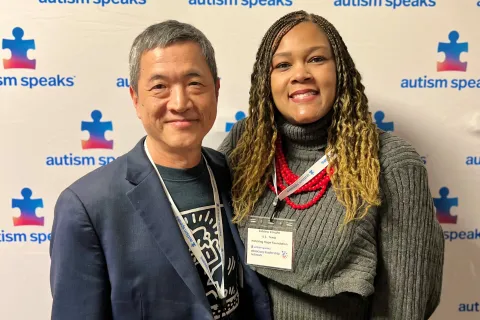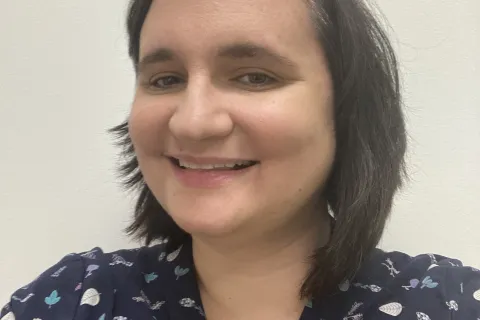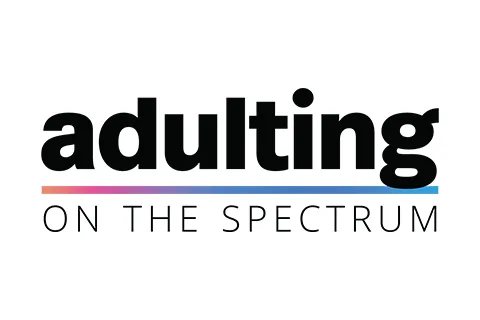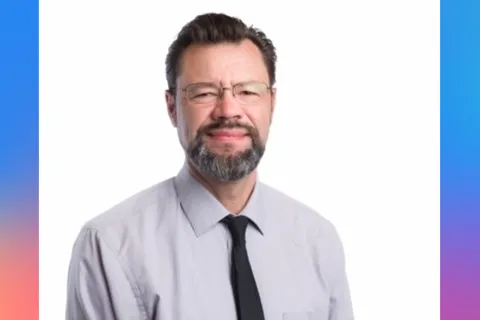Helping adults with autism find meaningful employment
By John Marble and Chris Morris. Read more about the Autism Advantage Program.

Some of the most rewarding friendships that I have as an autistic adult are with the parents of autistic children. Relating to my friends as fellow adults and their kids as fellow autistics, I get to toggle as a translator between their two worlds. Seeing the autistic experience from so many angles allows me to discover new insights about myself. There is something special that happens when a parent can just relax and honestly ask an autistic adult about how they’ve learned to navigate their own life experiences. After all, autistic children eventually grow up to be autistic adults.
To be sure, my friends I and I talk about baseball, and politics, and favorite bands. However, if you’re the parent of an autistic child, you already know that one steady topic of conversation is “The Cliff”, that point in life where government-funded services for autistic young adults suddenly drops off. I’m of a generation that’s always lived at the bottom of that cliff, where lack of knowledge about autism has meant a lack of resources. Knowing the other side of the cliff well, and working my entire life to scramble back up to its plateau, I’ve found it my duty as an autistic adult to share the insights I’ve gained so that new generations of autistics can live full, independent lives on solid ground.
Six months ago I moved to Silicon Valley (as an autistic person, that move took me a full 10 years to make). I came to pursue one of my autistic special interests - the future of work. I had noticed that the nature of work was changing and I wanted to learn more. Over these past six months, I’ve advised Goodwill of Silicon Valley and technology firm BuzzHero as they’ve formed a partnership to recruit, train, place, and support autistic talent in the technology sector and beyond. Having mapped out all other autistic employment programs for myself, I knew that they were stumbling onto something special.

Autism Advantage helps autistic adults lean-in to who they are as autistic people. It shows them how thinking differently, experiencing things differently, is a good thing. It doesn’t dismiss our challenges, but instead helps individuals find the best mechanisms to navigate them. Most importantly, it helps establish a network of fellow autistic individuals in order to foster support and community.
Chris Morris is an example of many who join our six-week employment program (currently training those interested in data analysis). Morris had earned a Masters degree from an Ivy League institution. Yet, his struggles with executive function and communication skills lost him several good jobs and pushed him to get evaluated and treated at 29. Though he had great technical skills and education, he still had difficulty making his value apparent to employers since he had a dearth of practical job experience in the field he wanted to enter. He also struggled with how and when to disclose an invisible disability to an employer and receive accommodations since he had never done that before. Coming to our program from New York, he is now employed full-time as an Account Support Associate with professional services firm EY working alongside two other Autism Advantage graduates in Dallas.

“Autism Advantage is what I needed to navigate an independent life of my own,” said Morris. “There was a psychological benefit to the program beyond the technical training and practical skills. It was in having so many companies come in to coach us. When executives from Visa and CA Technologies gave me specific feedback on my initial data presentation, it suddenly felt that the skills I’ve long had were validated.” Other company coaches have included Apple, eBay, Mastercard, and Pinterest.
Not everyone in the Autism Advantage program has a college degree like Morris, and no two of our students share the same abilities and skill. However, what all of the students share is a desire to live more fulfilling lives. While we’ve built our initial courses around data science, it’s the building out of “post-cliff” practical skills which make our students so valuable to employers. That focus will allow us to grow our hard skills training in years to come. Whether an autistic person has a knack for graphic design or gardening, wants to be a data coder or a custodian, the autistic experience offers them hidden advantages that employers are increasingly discovering that their companies need.
No family should go through the experience of autism alone. That’s why I wish there were more friendships shared between parents of autistics and autistic adults. If you’re in the Bay Area, stop by our program and I’ll be thrilled to have those conversations with you, to figure out how we can build support beyond the cliff. We’d love to get your parental feedback, critiques, and insight into our program as well. I’d love to also introduce you to other autistic adults who, like Chris, are figuring out how to build the lifelong networks of support and autistic community that they need.







